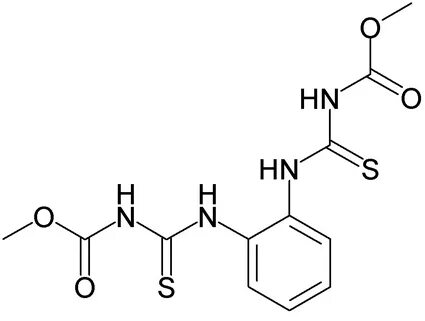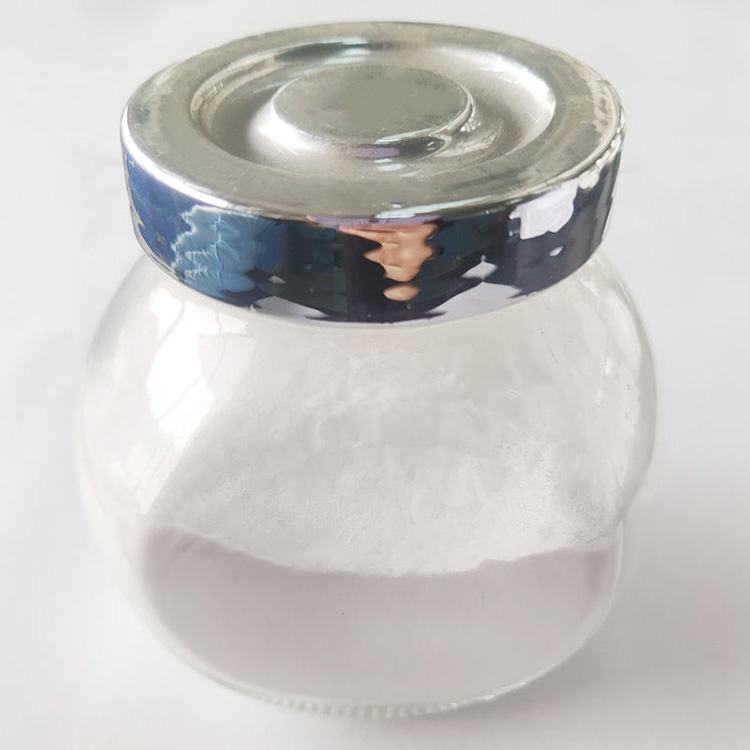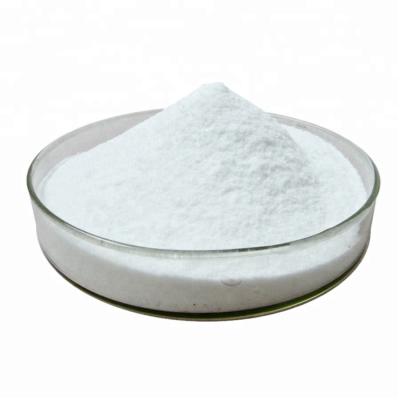The Thiophanate Methyl Common Fungicide
Common name: Thiophanate-Methyl
Chemical name:
Dimethyl N,N′-[1,2-phenylenebis(azanediylcarbonothioyl)]dicarbamate
Molecular formula: C12H14N4O4S2
It is a high-efficiency, low-toxicity, systemic fungicide, used for the prevention and treatment of three-wheat scab, cotton seedling disease, wheat rust, fruit tree disease, etc.
Physical and chemical properties:
The pure product is colorless crystal, m.p. 177~178℃ (decomposition), without difficulty soluble in dimethylformamide and chloroform; soluble in acetone, methanol, ethanol, ethyl acetate, dioxane; insoluble in water. stable to acid and alkali. business merchandise are light yellow crystals.
Common name: Thiophanate-Methyl
Chemical name:
Dimethyl N,N′-[1,2-phenylenebis(azanediylcarbonothioyl)]dicarbamate
Molecular formula: C12H14N4O4S2
Structural formula:

Molecular weight: 342.39
CAS No. : 23564-05-8
Product description:
Thiophanate-methyl is a substituted benzene fungicide according to its chemical structure. Thiophanate-methyl is converted into carbendazim after being absorbed by plants. It mainly interferes with the formation of pathogenic fungus hyphae, affects the cell division of pathogenic bacteria, poisons the cell wall, and spores germinate and grow out of the germ tube deformity, thereby killing the pathogen. The validity period is 5-7 days. It is mainly used for foliar sprays, and can also be used for soil treatment. It can be mixed with hymexazol to prevent root and soil diseases with significant effects.
Usage:
High-efficiency, low-toxicity bactericide, with preventive and systemic effects, because the medicament can be converted into carbendazim after can be widely used for a variety of diseases such as grain, cotton, oil, vegetables, and fruit trees.
It is a high-efficiency, low-toxicity, systemic fungicide, used for the prevention and treatment of three-wheat scab, cotton seedling disease, wheat rust, fruit tree disease, etc.
Submitted successfully
We will contact you as soon as possible




